The two-day visit to Hamburg offered valuable insights into food system development, start-up support, and cluster governance. The program was organized in collaboration with the Cleverfood delegation, bringing together participants from several European countries, including Italy, the Netherlands, Belgium, and Poland. The purpose of the trip was to learn from Hamburg’s innovative approaches and explore how similar models could be applied in North Savo and Finland to strengthen regional and national food cluster development.
The visit began with an introduction to cell-cultivated seafood, a rapidly emerging field that addresses the challenges of traditional aquaculture, which is reaching its limits due to overfishing, environmental destruction, animal welfare concerns, and health risks. BLUU SeaFood produces cultivated fish products such as fish fingers, caviar, and sashimi, resulting in safe, healthy, fully traceable products that are 80 times faster to produce than conventional salmon. This production is extremely resource-efficient and location independent, helping preserve ecosystems and offering a scalable solution for the future of plant-protein production. The case demonstrated how innovation, combined with supportive policies and cluster networks, can accelerate the transition to sustainable food systems.
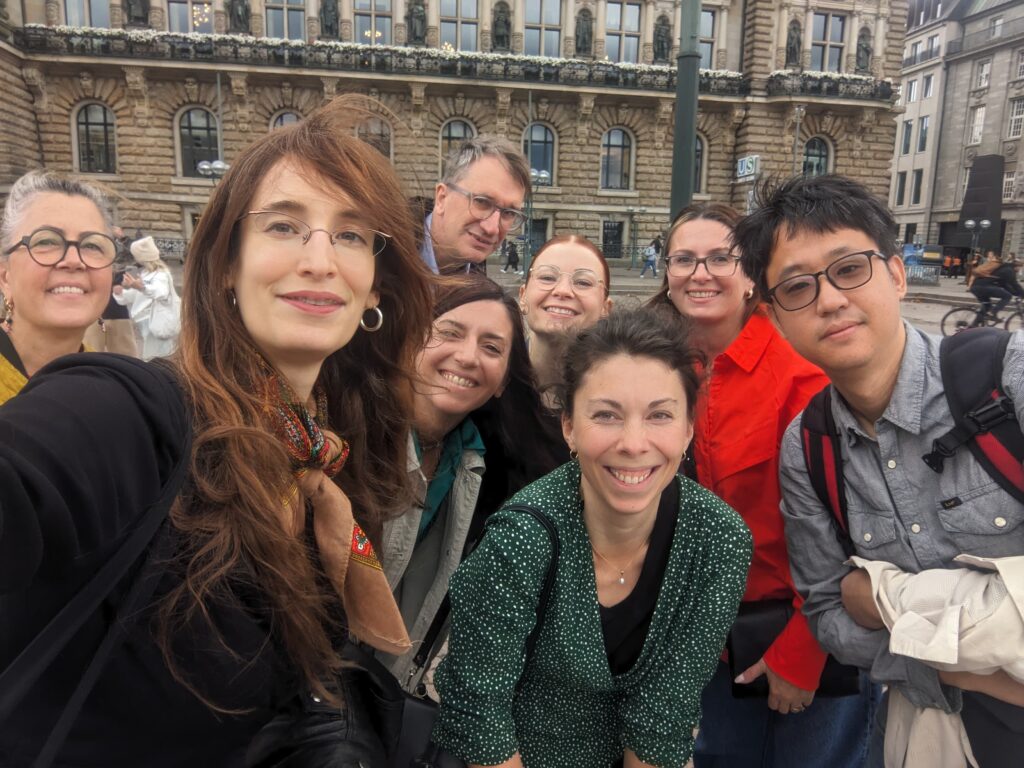
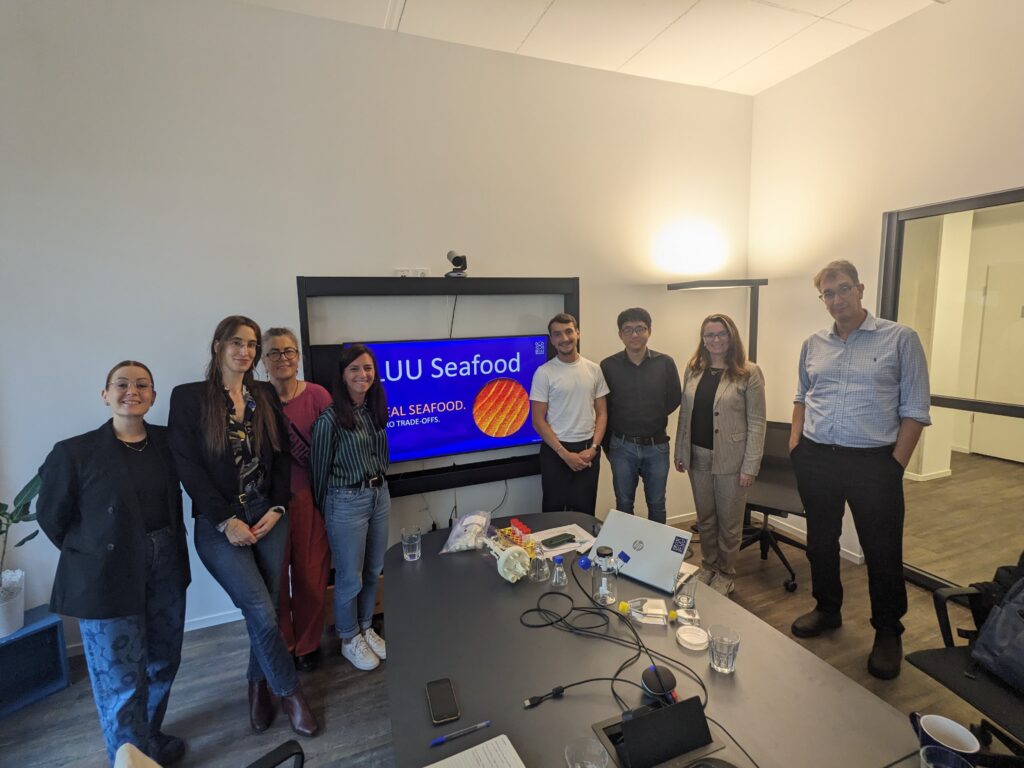
At the Hamburg Ministry of Environment, Climate, Energy and Agriculture, we learned about the region’s agricultural profile and food strategies. Hamburg has 519 farms, of which 59 are organic, covering 140 km² of agricultural land, with 11.5% dedicated to organic farming. The “Good Food from Hamburg” Hamburg Food Strategy 2025–2030 plays a central role in guiding future development and explicitly highlights the importance of the local food cluster. A very important learning outcome was to learn the strength of cooperation between relevant institutions to increase the purchase of organic local food.
We continued to Food Harbour Hamburg, a start-up accelerator and innovation platform that supports companies throughout their journey from idea to market launch. Their services include for example market analysis, product development, and access to production and testing facilities. Initially city-funded, Food Harbour has now grown into a self-sustaining innovation network. It has already played a key role in nurturing pioneering companies, including the cultivated seafood producer visited earlier in the day.
During this visit, we also heard about plans for the Future Food Campus, a visionary hub for novel foods and alternative proteins, with a global market potential projected to reach €1 trillion by 2025. Examples such as Respect Farms in the Netherlands, which combines traditional farming with cultivated production, highlighted innovative approaches to bridging conventional and emerging food systems. Hamburg is also preparing new legislation to enable living labs, where novel food products and concepts could be tested in real-world settings. This proactive approach to innovation demonstrates how public policy and entrepreneurial ecosystems can work hand in hand to accelerate sustainable change.
The first day concluded with a dinner at Hobenköök, a restaurant that showcases local, seasonal ingredients. This experience illustrated how gastronomy plays a key role in promoting sustainable food culture and consumer awareness, while directly supporting local producers.
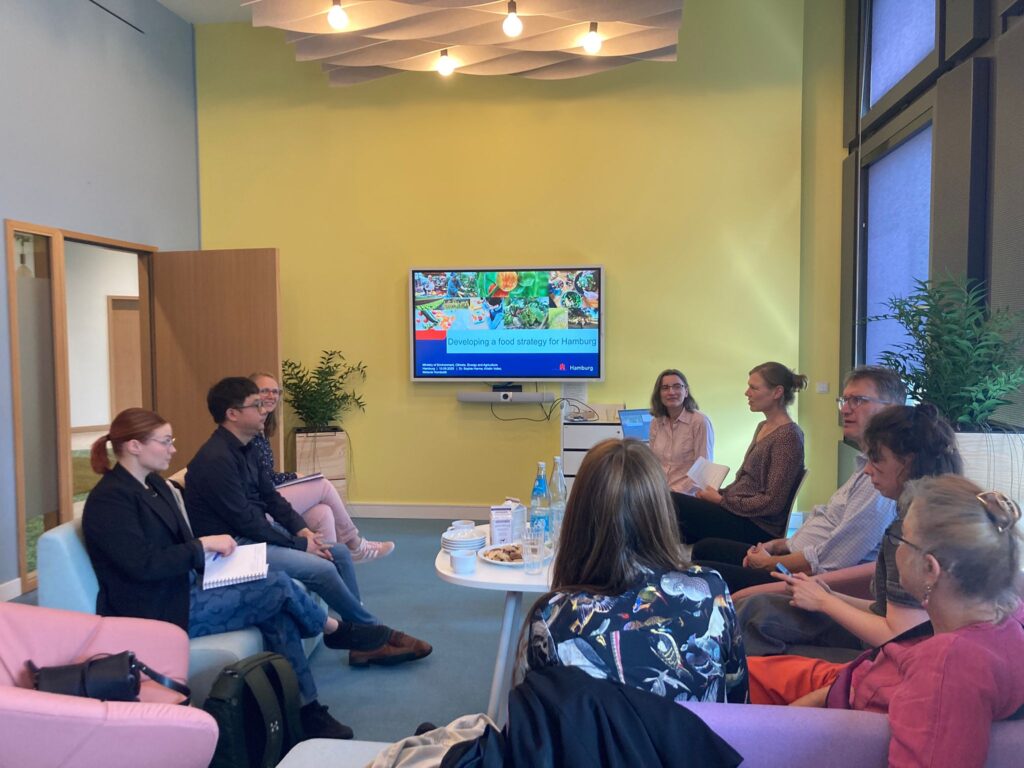
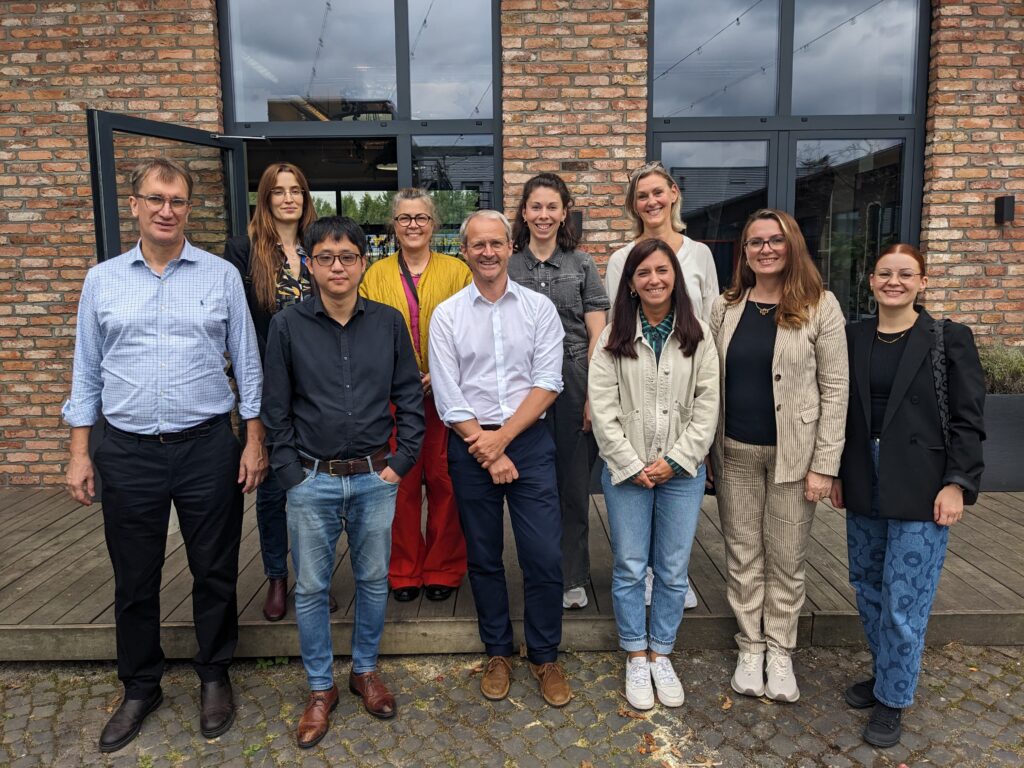
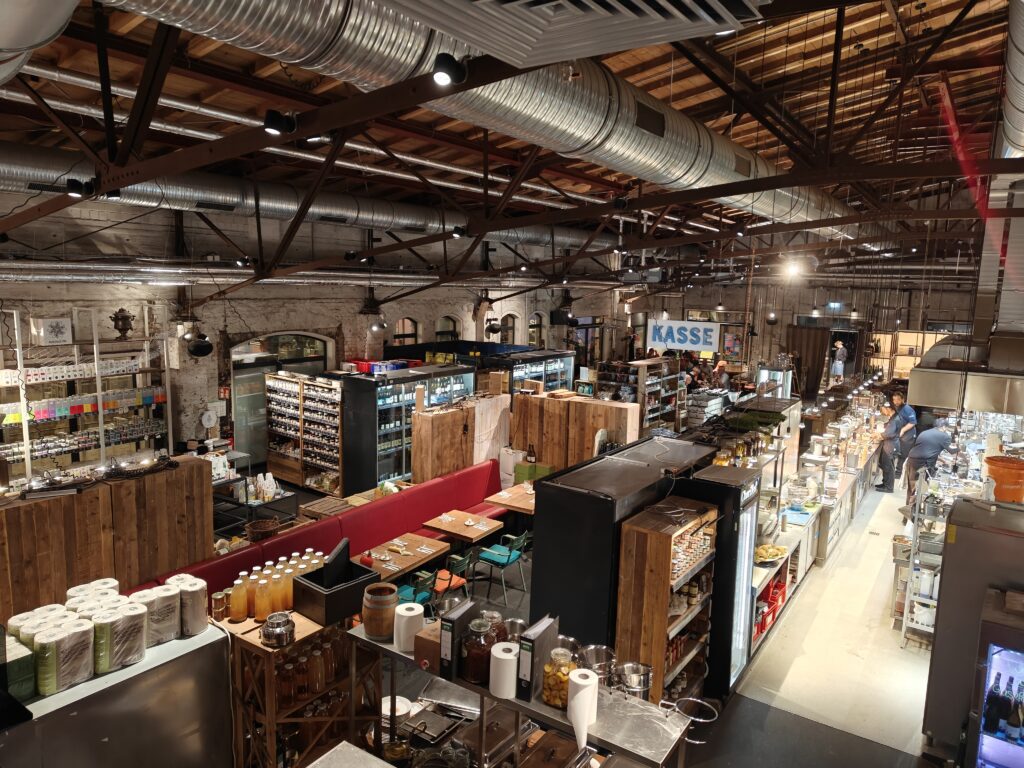
The second day focused on cluster development and governance. The Food Cluster Hamburg brings together 160 private companies and serves as a strong voice for the food industry. It was interesting to hear that associations are not direct members but are connected through the Ministry of Innovation and Economy, keeping the cluster business-driven and responsive to market needs. This differens a lot from Agri-Food Cluster North Savo.
The Food Cluster Hamburg’s success is closely linked to its regular interaction with policymakers, including biweekly meetings, which ensure strong alignment between business and political agendas. Almost all political parties supported the founding of the cluster, reflecting its broad strategic importance. Services include both basic networking opportunities and premium services for an additional fee. Strategic tools such as roundtables with senators and CEOs help align long-term visions and foster collaboration. Hamburg is also developing a cross-cluster initiative to increase cooperation between sectors such as food, health, and technology. In North Savo we already have a cross-sertoral metacluster, SuperEcosystem, that bring all the sectoral clusters together. It will be interesting to follow-up how the development in Hamburg continues.
Hamburg’s cluster development demonstrates how predictable funding, clear governance structures, and political integration can create a powerful engine for regional competitiveness. For Finland, where cluster structures are still emerging, it highlights the importance of national-level coordination and sustainable financing models to ensure continuity and impact. Of course, one has to remember the differences between North Savo and Hamburg, but also Finland and German. Hamburg is serving as the city but also a state when North Savo is a region. Because of these differences, the situations are not exactly comparable, but it does not mean that we could not learn any good practices from Hamburg.
Food Harbour demonstrates how targeted support can help start-ups move from idea to commercialization. Establishing test environments, mentoring programs, and innovation funding would accelerate food innovations also in North Savo.
Hamburg’s cluster is a strong example of how business-driven networks, combined with close political ties and secure funding, can deliver long-term benefits. Finland can learn from this to develop national cluster policies and financing mechanisms.
The visit generated new contacts and project ideas with partners from Germany, the Netherlands, Belgium, Italy, and Poland. These connections provide a strong foundation for future EU-funded projects and for raising Finland’s international visibility.
The Hamburg visit provided both inspiration and concrete tools for advancing food system development and food cluster development in North Savo and across Finland. By integrating lessons on governance, innovation, and international collaboration, we can foster a stronger, more resilient food ecosystem.
The next steps include applying these insights locally and strengthening cluster structures. In Agri-Food Cluster we have already started the networking work for building a national food cluster network that connects Finland to the broader European innovation landscape.
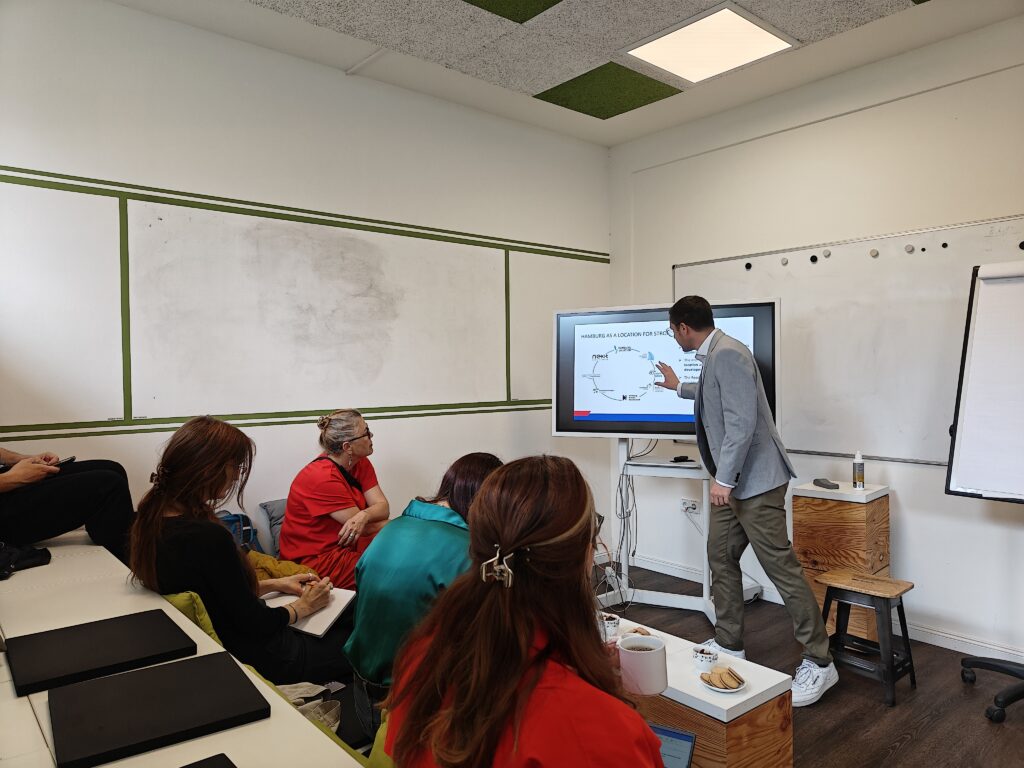
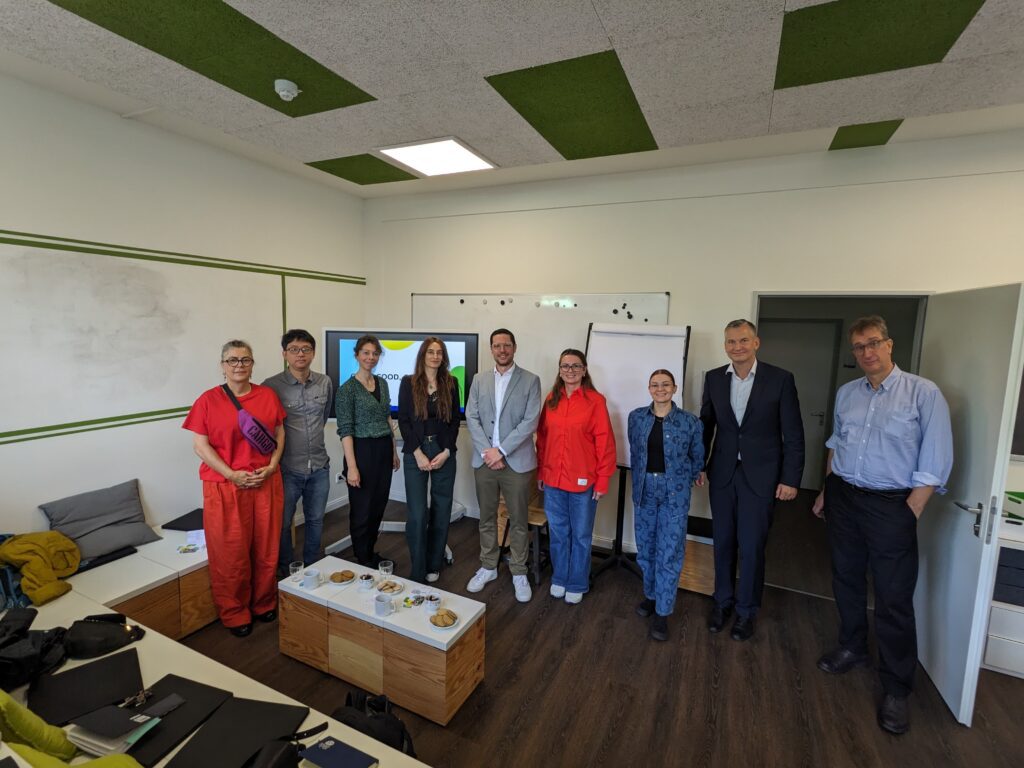

Cluster Manager, Agri-Food Cluster North Savo

Network Expert, Agri-Food Cluster North Savo